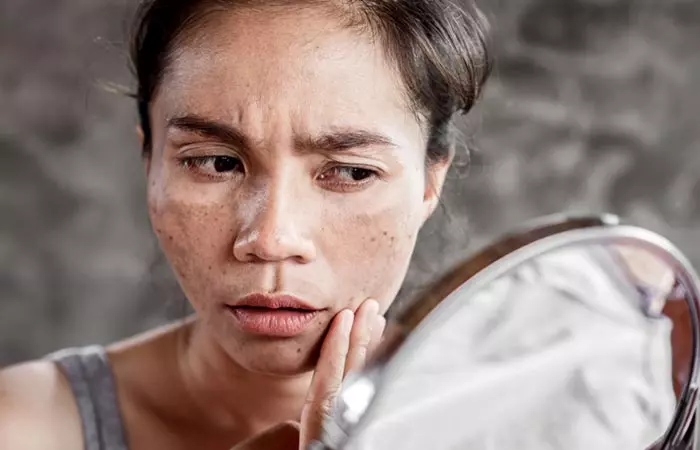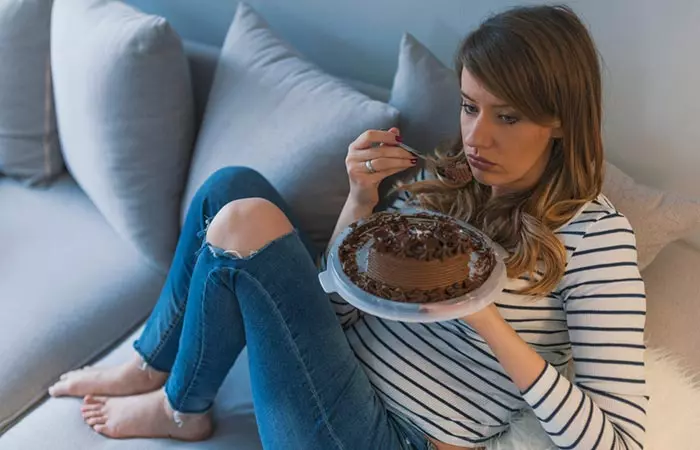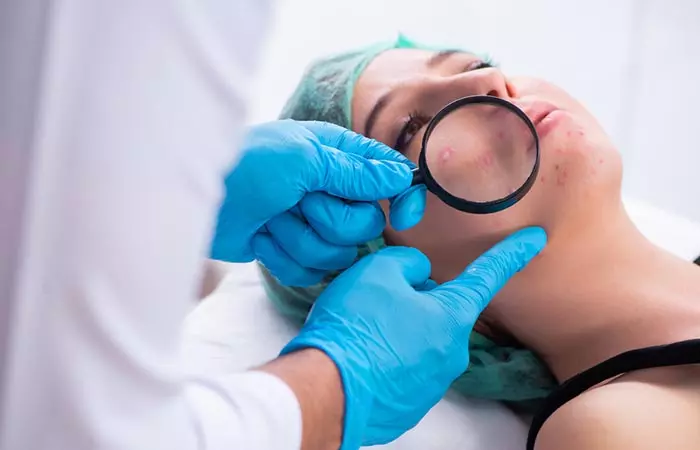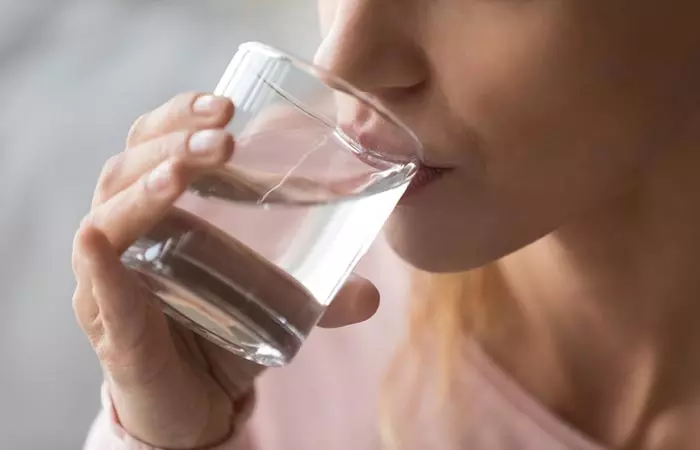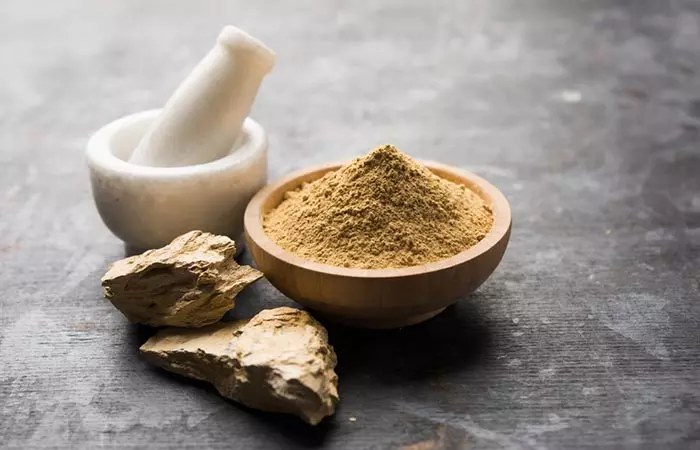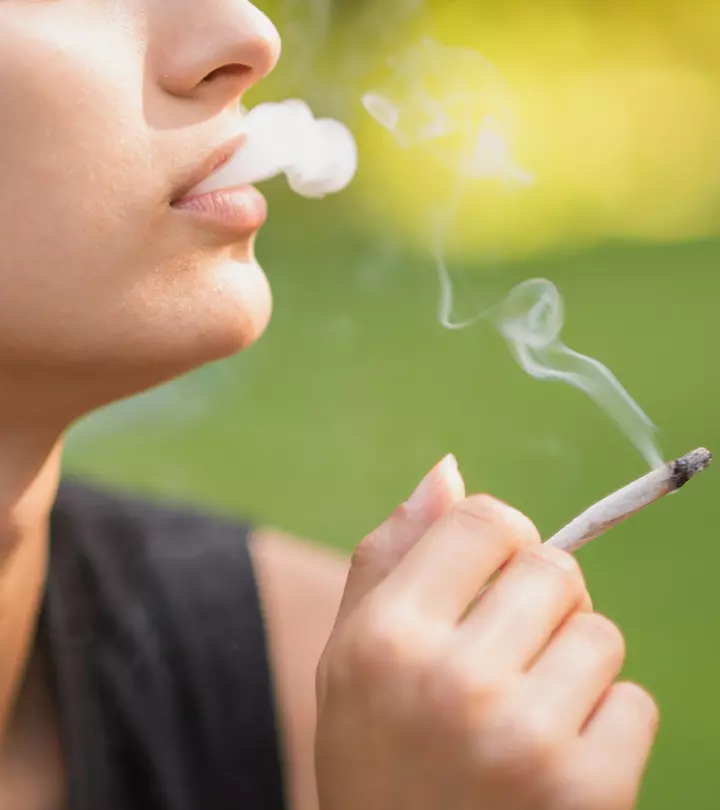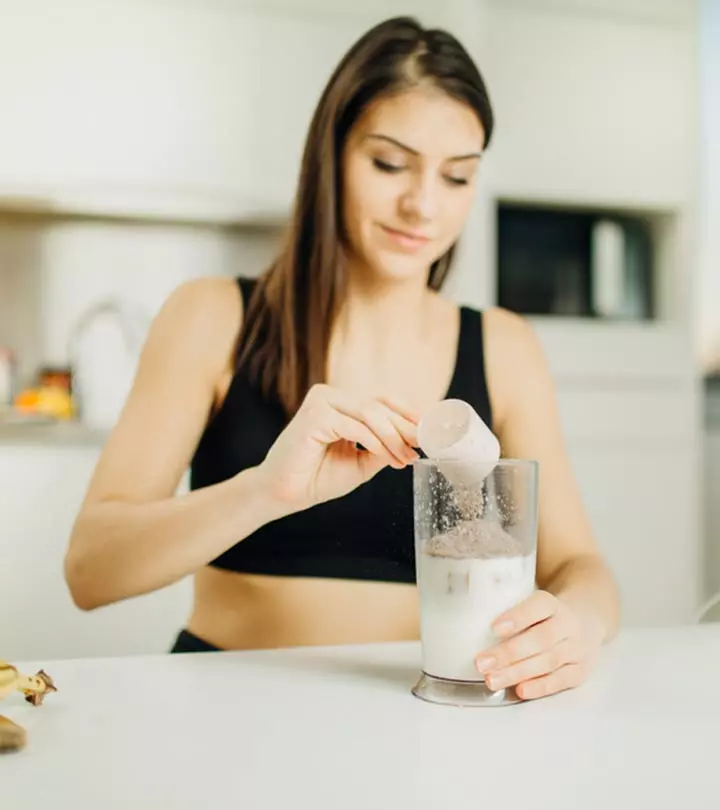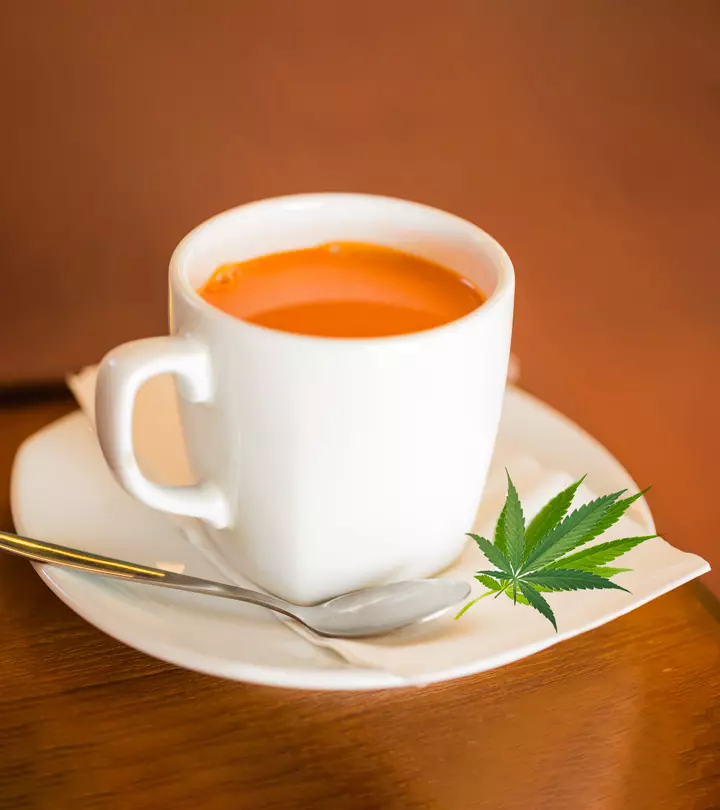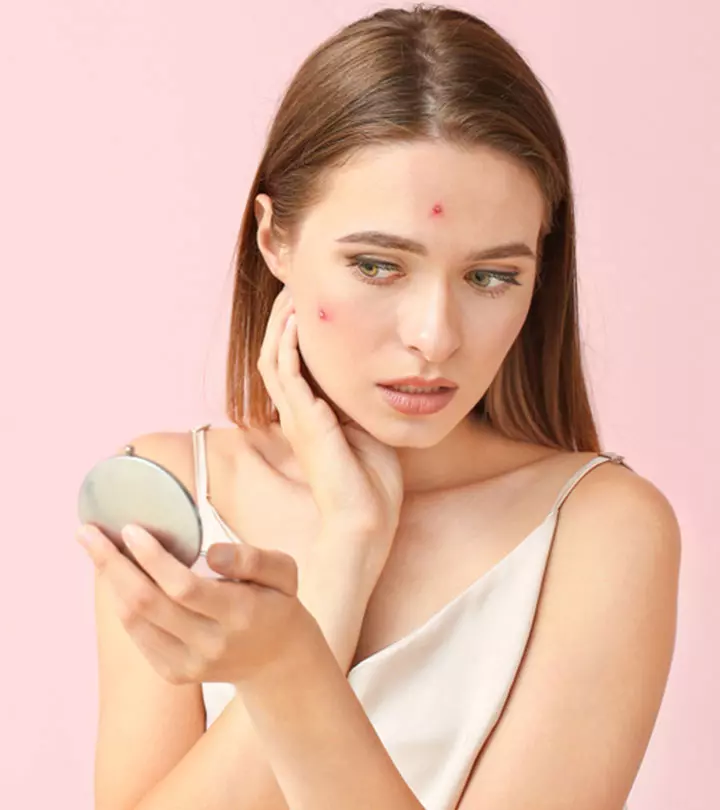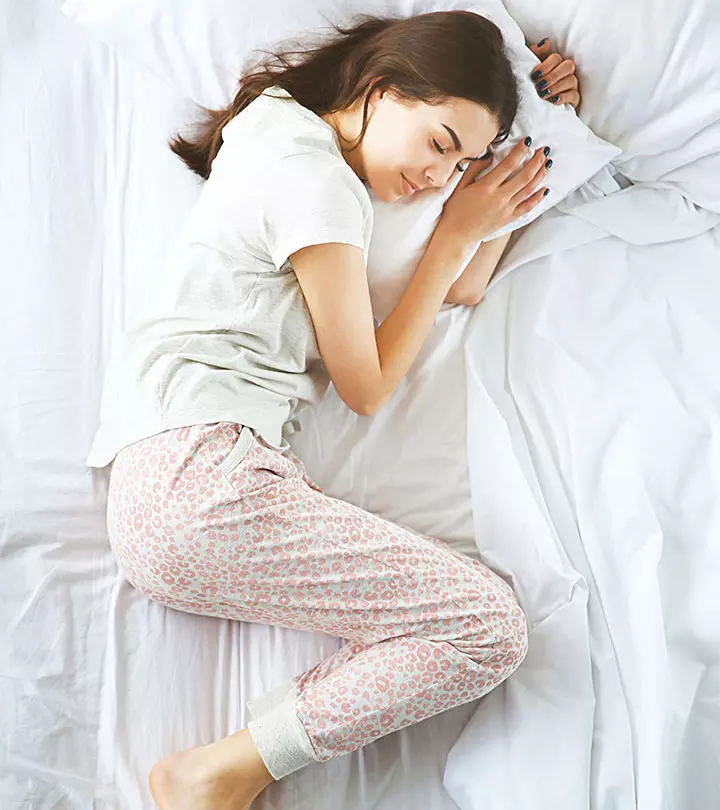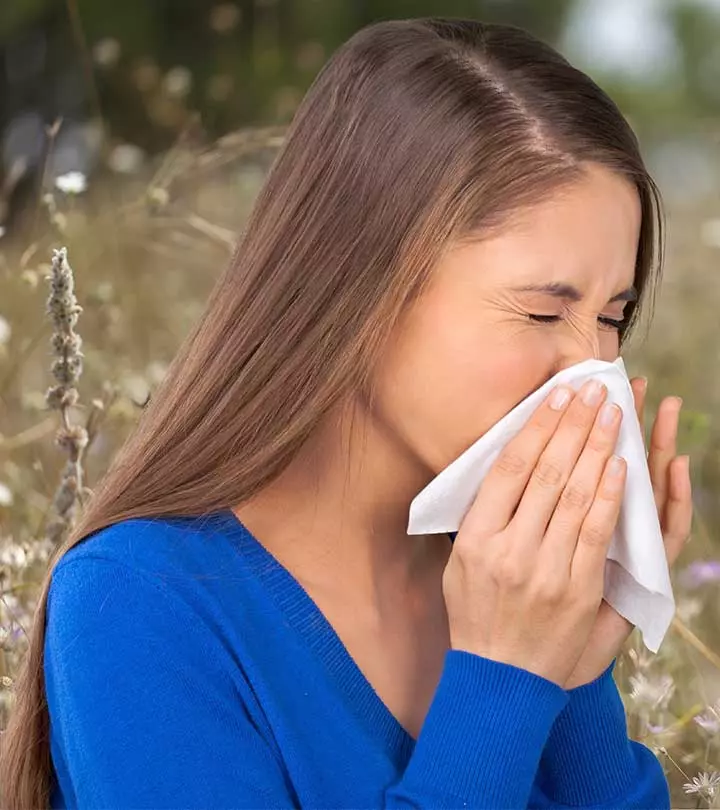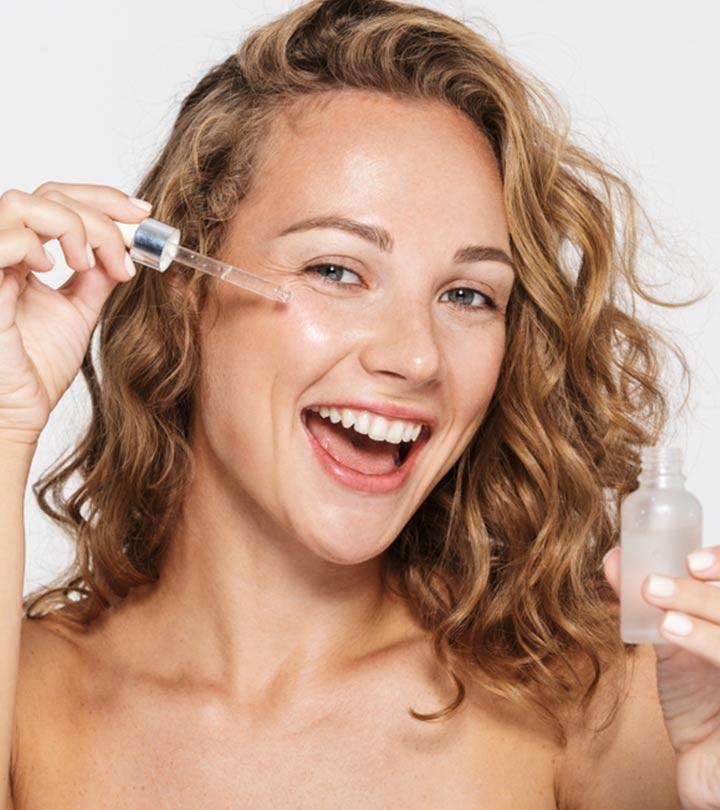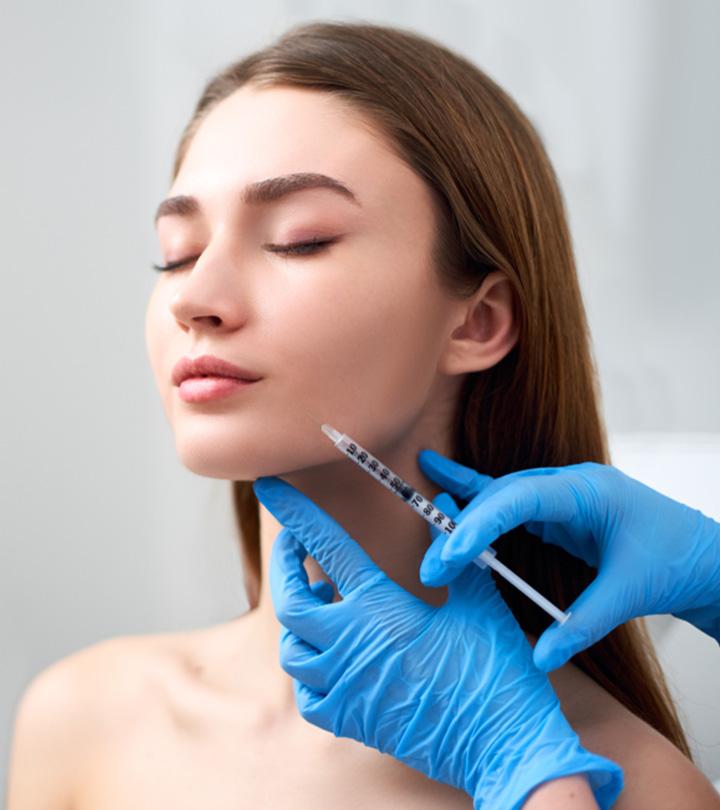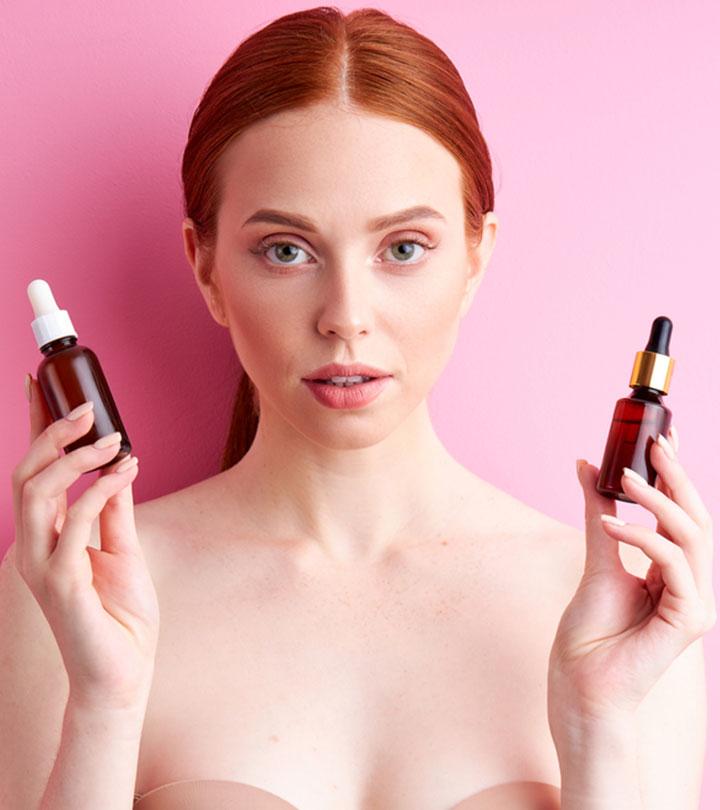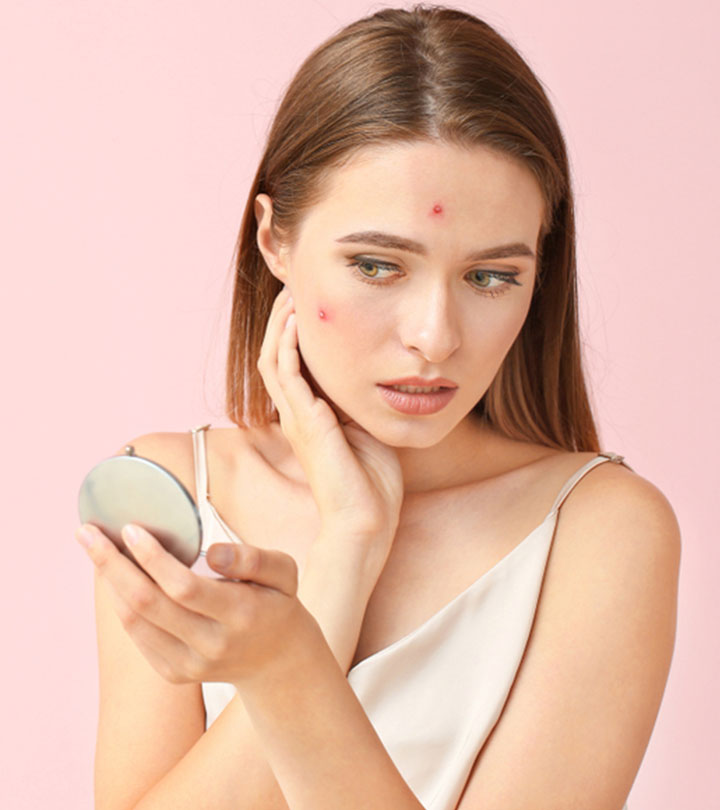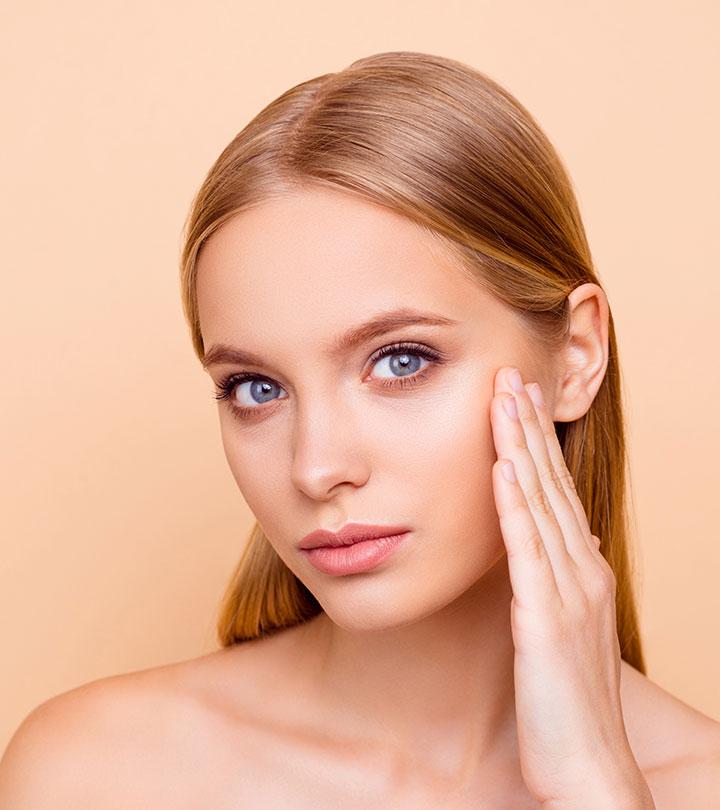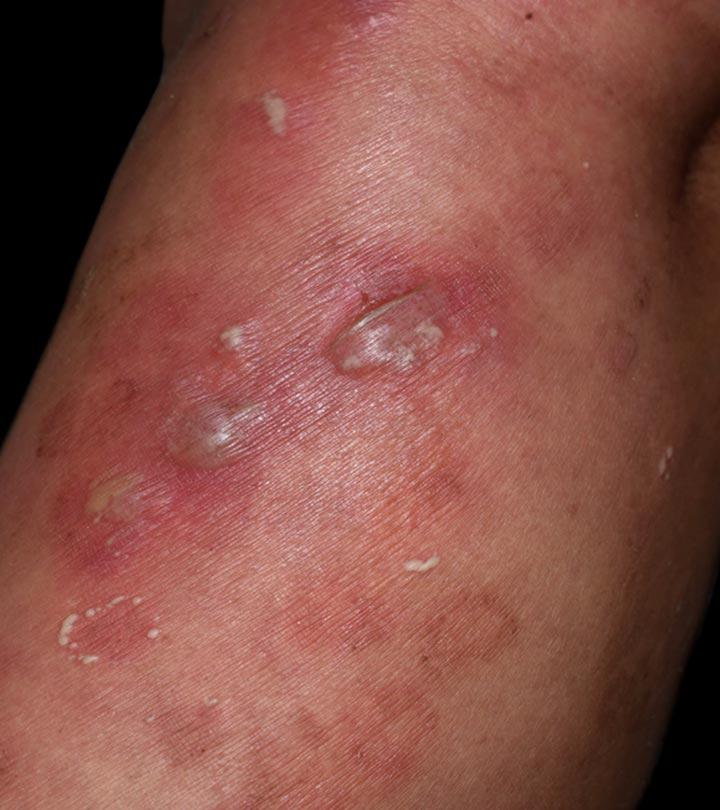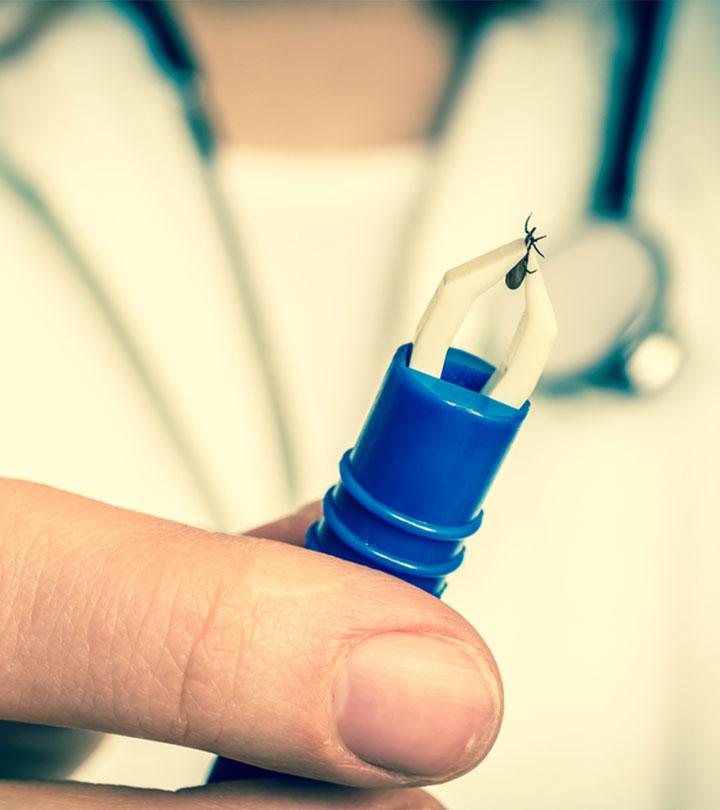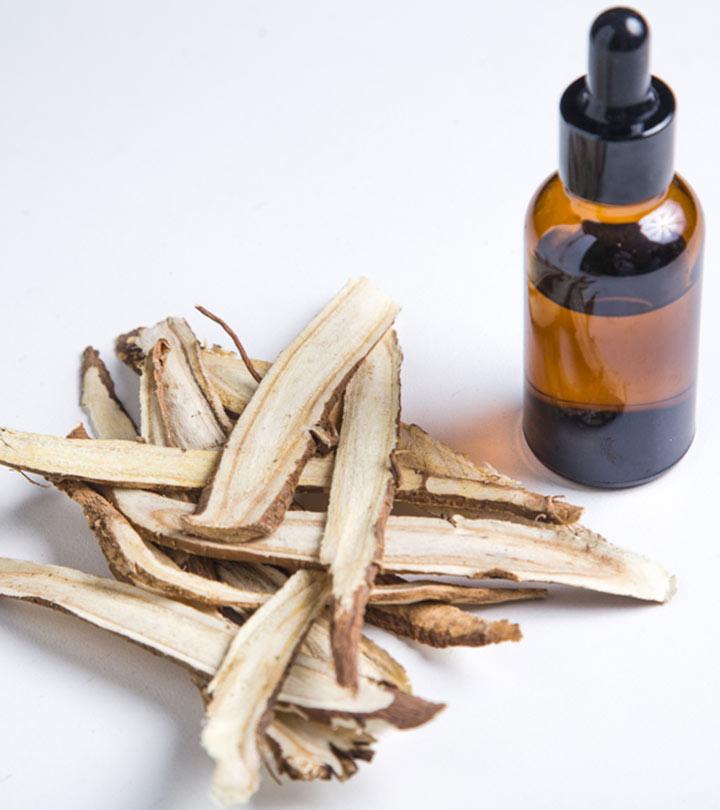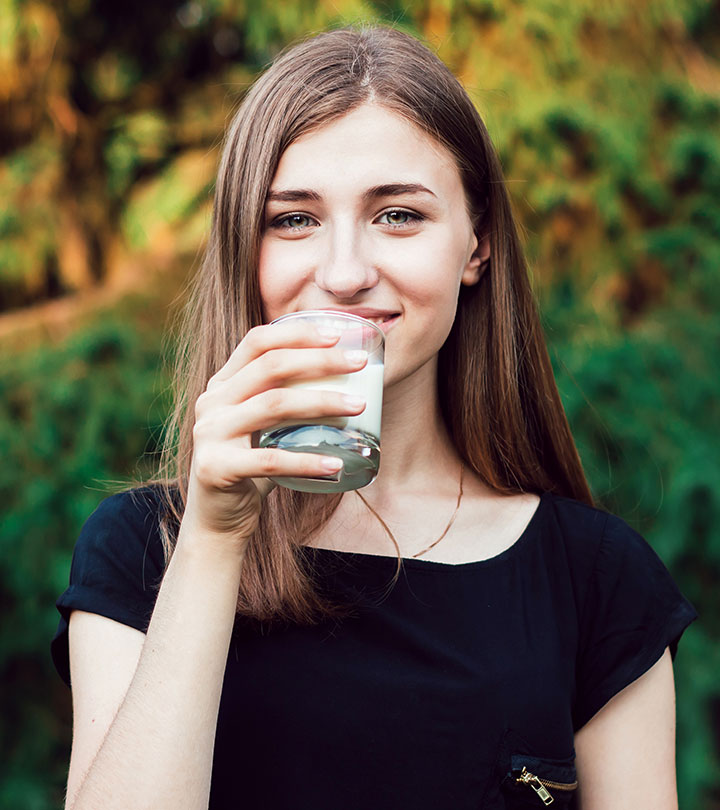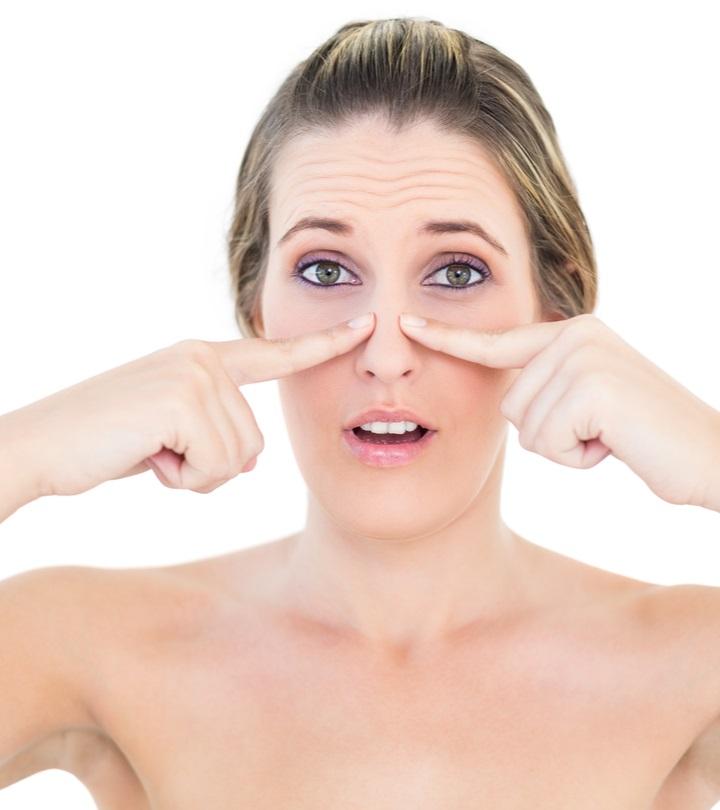Can Smoking Weed Cause Acne Or Treat It?
Get a deeper understanding if this medicinal plant is at the root of those pesky bumps.
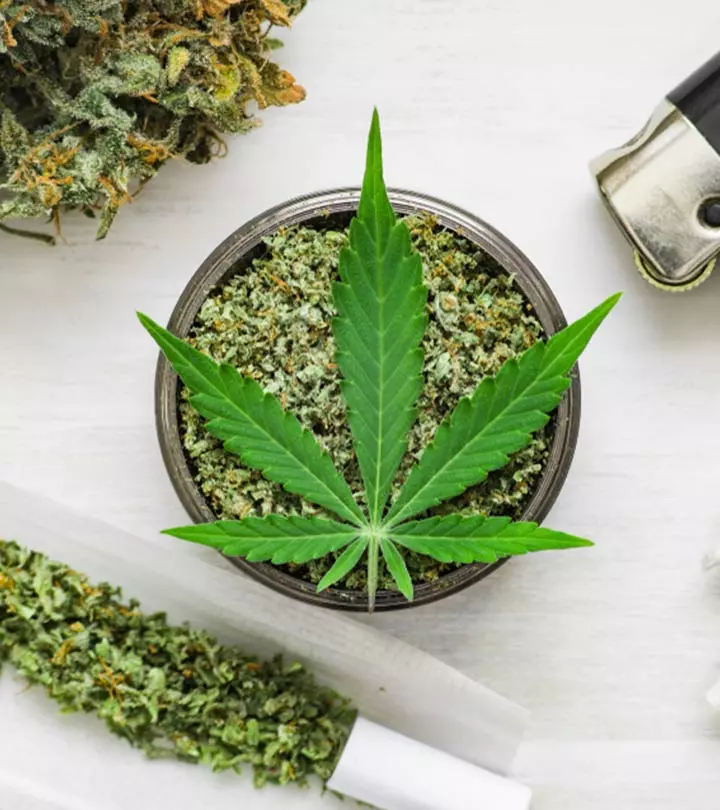
Image: Shutterstock
Does smoking weed cause acne? If you have been relating the recent breakouts on your face to smoking weed, let us tell you – there is no scientific evidence showing any direct effects of weed on acne. Marijuana or cannabis has therapeutic benefits and is often used for cancer treatment (1) (2). And while many people may associate smoking weed with their skin health and acne, it is best not to jump to conclusions without knowing the truth. Scroll down to understand what research says about smoking weed and acne and what you can do to minimize pimple breakouts.
Marijuana sales for recreational and medicinal purposes have increased ever since it was legalized in California for both purposes. The expected sales of the marijuana industry are projected to increase from $6 billion in 2016 to $24 billion in 2025. The graph shows the average projected market share of marijuana in the US.
Projected Growth Of Marijuan Market In The U.S.
Source: U.S. Marijuana Market: The Grass Is Getting GreenerAnd while many people may associate smoking weed with their skin health, especially acne, it is best not to jump to conclusions without knowing the truth. Scroll down to understand what research says about smoking weed and acne and what you can do to minimize breakouts.
 Did You Know?
Did You Know?In This Article
Does Smoking Weed Cause Acne – What Does
Research Say?
There is no direct evidence suggesting that smoking weed causes acne. However, smoking weed can cause hormonal changes in men and women that may indirectly lead to acne breakouts.
- Weed Affects Reproductive Hormones: The main psychoactivei A substance that changes how the brain usually filters information when consumed or administered. ingredient in weed is THC (Tetrahydrocannabinol), which affects various hormones, such as luteinizing hormone (LH), follicle stimulating hormone (FSH), growth hormone (GH), adrenal cortical hormones, thyroid hormones, and prolactin. THC depresses LH, FSH, GH, prolactin, and thyroid gland function (3). The changes in these reproductive hormones can disrupt ovulation and spermatogenesisi A term used to describe the process by which sperm cells form within male reproductive organs. (4).
More research is needed to come to a concrete conclusion on whether these hormonal changes can cause acne. Also, the hormones can be rebalanced if you stop smoking marijuana.
- Smoking Weed Increases Appetite: Smoking weed can increase appetite. However, paradoxically, consistent marijuana users tend to have a low body mass index (5). But the problem with increased appetite is that people tend to gravitate towards chips, pizza, sugary foods, etc. that are loaded with trans fats, starch, and sugar, which may lead to weight gain (6), (7).
Regularly smoking weed may make one consume more of unhealthy, processed foods that disrupt the omega-3:omega 6 fatty acid balance. An increased amount of omega-6 fatty acids causes inflammation, which is closely linked to acne (8).
- Smoking Weed Increases Oxidative Stress: We know that smoking cigarettes increases free oxygen radicals that cause oxidative stress (9). Scientists say that smoking marijuana can also cause oxidative stress too, unless a filter is used to filter out the particulate matter (10).
There is no direct evidence linking oxidative stress caused by smoking weed to acne. However, scientific evidence does show a direct relation between smoking and acne (11).
Neal Asher, a blogger, shared that he suffered from acne rosacea that kept worsening and spreading until he quit smoking weed. He observes his experience on his blog: “In the past, I’ve gone through various phases thinking it was the sun that aggravated this, it was skin mites, or it was my drinking, or that I needed to take this vitamin or that. Now, having given up smoking for 50 days, I don’t have a single itchy spot on my face or my scalp (i).”
So, research does not directly link smoking weed to acne. Acne can be caused due to genes or a poor lifestyle. Talk to your doctor to know the root cause. But since weed is prescribed for medical purposes, does this mean a few properties of weed can reduce inflammation and acne? Let’s find out in the section below.
Can Smoking Weed Cure Acne?
Scientific evidence shows that weed can reduce inflammation. Topically applied phytocannabinoidsi Bioactive compounds naturally occurring in plants, flowers, and fungi that can help with various ailments. decrease production of sebum, inhibit the proliferation of sebocytes (sebum-producing skin cells), and may reduce the expression of pro-inflammatory molecules that cause inflammatory skin conditions (12).
Another paper published in the Journal of Dermatological Treatment showed that cannabinoids in marijuana have anti-inflammatory, anti-aging, antipruritic, and anti-malignancyi A crucial term in anti-cancer drug design, it connotes the ability of a substance to prevent or treat cancerous diseases. properties. These properties are effective in decreasing the severity of acne, psoriasis, and atopic dermatitis (13).
However, these effects of marijuana are observed only through topical application (a scientifically-formulated marijuana patch) and not through smoking weed. Hence, it would not be wise to suggest that smoking weed may reduce acne.
So, let us look at a few risks associated with smoking weed. Check out the next section to read more about it.
Side Effects Of Smoking Weed
Marijuana use has a range of effects on both short-term and long-term health. In the short term, it impairs short-term memory, affects motor coordination, and alters judgment skills. In high doses, people may experience paranoia and psychosis, which may lead to severe mental health issues. Long-term or heavy marijuana use has more serious consequences. It can lead to addiction and alter brain development, leading to cognitive impairment and lower IQ, especially in those who frequently used marijuana during their adolescent years. Moreover, chronic marijuana use is associated with diminished life satisfaction and achievement. It can also cause bronchitis-like symptoms and increase the risk of chronic mental health disorders, including schizophrenia (14).
Neal Asher also had to greatly rely on asthma inhalers due to his smoking habit. He writes, “I was taking a few puffs when going to bed, sometimes in the night because of breathing difficulties, sometimes in the morning too. Very occasionally I needed them during the day.” However, he was able to stop using them after he quit smoking weed: “During the first couple of weeks of quitting I took the occasional pull, but since then I haven’t even had reason to think about the things [sic].”
But should you still want to treat your acne breakouts, we have a few tips/methods you may follow.
What To Do To Reduce Acne Breakouts?
- See A Dermatologist: Immediately talk to a dermatologist if you see your skin breaking out. Acne can be caused due to many factors, including hormonal fluctuations, pregnancy, and a poor diet and lifestyle. A dermatology expert can get to the root cause of your breakouts and help you find the best course of action.
- Wash Your Face: Keep your skin clean if you have acne. Use a medicated or dermatologist-recommended gentle cleanser with salicylic acid twice a day to eliminate the acne-causing bacteria.
- Apply An Anti-Acne Ointment: Once your skin is clean, proceed further with your skincare routine and apply a toner and a light moisturizer. Also remember to use a doctor-recommended anti-acne ointment every day before going to bed. The ointment will protect your skin and prevent excess oil production.
- Use An Acne Patch: Use a good acne patch that can help reduce smaller breakouts quickly. These are hydrocolloidi A kind of dressing that can retain moisture, usually used for non-infected wounds, such as minor burns or sores. dressings that soak up the fluid from the acne and reduce the acne bumps in 8 to 9 hours.
- Use Non-Comedogenic Makeup: Always check the ingredients to see if the makeup you use is non-comedogenic. Makeup tools like tinted moisturizers, foundations, concealers, blushes, highlighters, and others must be certified non-comedogenic and hypoallergenici It refers to any substance that is unlikely to cause an allergic reaction. However, it is not the same as allergy-free. .
- Maintain Personal Hygiene: Keep your pillowcase and towel clean. Wash them once every two or three days to keep the bacteria from transferring to your skin.
- Drink Water: Staying hydrated is very important, and more so if you have acne. Water helps flush out the toxins and reduces the harmful free oxygen radicals and inflammation. Drink 3 to 4 liters of water every day.
- Consume More Veggies And Fruits: Vegetables and fruits are loaded with antioxidants, minerals, and fiber that help keep your gut healthy and scavenge the harmful free oxygen radicals. They help keep your skin healthy and glowing. Consume leafy green vegetables, root vegetables, watermelon, citrus fruits, tomato, cucumber, papaya, apple, etc.
- Exercise Regularly: Exercising helps improve your mood by secreting serotonin (a feel-good hormone) and reducing mental stress as a consequence. Exercising also helps unclog the skin pores and remove dirt.
- Sleep Well: Sleeping well helps reduce stress and inflammation in the body. It is important to get about 7 to 8 hours of sleep every night.
- Stop Smoking Weed: To find out if smoking weed is causing acne, see what happens when you stop it. An alternative to not smoking weed could be edibles (edible marijuana in the form of chocolates or cakes).
- Apply Fullers Earth Mask:
Mix 3 teaspoons of Fullers earth with 3 teaspoons of rose water and 2 teaspoons of plain water. Apply the mixture to your face and wait for it to dry. Wash with water, pat dry your skin, and apply a water-based moisturizer. Do this every other day to reduce acne and blemishes.
 Trivia
TriviaInfographic: Effective Ways To Reduce Acne Breakouts
Acne is a long-term inflammatory skin condition that can be caused due to a variety of factors. But with some lifestyle modifications and skin care routine changes, you can easily combat this issue. While there are many effective ways to reduce acne breakouts, we listed the most effective ones in the infographic given below. Check it out to know more.

Illustration: StyleCraze Design Team
There is no empirical evidence to support the claim that smoking weed causes acne. However, it may affect the hormone levels in the body, which may trigger acne or exacerbate existing lesions. If you think smoking weed is triggering your breakouts, stop smoking and observe your skin. You may consult a doctor to understand the exact cause of the breakouts and follow the prescribed treatment and suggestions. However, you also have to take care of your lifestyle. Consume your greens and fruits, exercise, stay hydrated, and take care of your skin to keep it healthy and minimize breakouts.
Frequently Asked Questions
Does smoking weed make you age faster?
There is some evidence to suggest that cannabis exposure can speed up the overall aging process (15).
Should I wash my face after smoking weed?
You may wash your face after smoking weed. However, overwashing your face may strip your skin of natural oils and make it more prone to dryness.
Is skin damage from smoking weed reversible?
Skin damage from smoking in general may be reversible if you quit.
Key Takeaways
- Indirectly, smoking weed may lead to acne flare-ups due to hormonal changes.
- Acne isn’t directly linked to smoking weed, but genes or a poor lifestyle can cause it.
- Exercise regularly, stay hydrated and stress-free, and follow a healthy diet to reduce acne lesions.
Personal Experience: Source
StyleCraze's articles are interwoven with authentic personal narratives that provide depth and resonance to our content. Below are the sources of the personal accounts referenced in this article.
i. Day 50 of not Smokinghttps://theskinner.blogspot.com/2013/09/day-50-of-not-smoking.html
References
Articles on StyleCraze are backed by verified information from peer-reviewed and academic research papers, reputed organizations, research institutions, and medical associations to ensure accuracy and relevance. Read our editorial policy to learn more.
- Cannabidiol in cancer treatment
https://pubmed.ncbi.nlm.nih.gov/31897700/ - MARIJUANA AND CANCER
https://www.ncbi.nlm.nih.gov/books/NBK224387/ - Endocrine effects of marijuana in the male: preclinical studies
https://pubmed.ncbi.nlm.nih.gov/6090909/ - Acute, short-term, and chronic effects of marijuana on the female primate reproductive function
https://pubmed.ncbi.nlm.nih.gov/6090911/ - Marijuana and Body Weight
https://www.ncbi.nlm.nih.gov/pmc/articles/PMC4204468/ - Stress, Food, and Inflammation: Psychoneuroimmunology and Nutrition at the Cutting Edge
https://www.ncbi.nlm.nih.gov/pmc/articles/PMC2868080/ - High Intake of Sugar and the Balance between Pro- and Anti-Inflammatory Gut Bacteria
https://www.ncbi.nlm.nih.gov/pmc/articles/PMC7284805/ - The relationship of diet and acne
https://www.ncbi.nlm.nih.gov/pmc/articles/PMC2836431/ - Cigarette Smoking and Oxidative Stress in Patients with Coronary Artery Disease
https://www.ncbi.nlm.nih.gov/pmc/articles/PMC5175512/ - Oxidative stress produced by marijuana smoke. An adverse effect enhanced by cannabinoids
https://pubmed.ncbi.nlm.nih.gov/10340948/ - Acne and smoking
https://www.ncbi.nlm.nih.gov/pmc/articles/PMC2835905/ - Cannabinoids in the Pathophysiology of Skin Inflammation
https://www.ncbi.nlm.nih.gov/pmc/articles/PMC7037408/ - The potential role of cannabinoids in dermatology
https://pubmed.ncbi.nlm.nih.gov/31599175/ - Adverse Health Effects of Marijuana Use
https://www.ncbi.nlm.nih.gov/pmc/articles/PMC4827335/ - Cannabis exposure as an interactive cardiovascular risk factor and accelerant of organismal ageing: a longitudinal study
https://bmjopen.bmj.com/content/6/11/e011891.full?keytype=ref&ijkey=zkt0wH3QM7rWzwC
Read full bio of Dr. Priya Gill
Read full bio of Eshna Das
Read full bio of Shiboli Chakraborti






